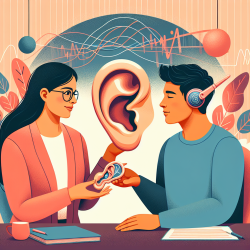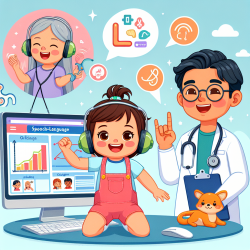As a therapist working in an educational setting, it's crucial to stay updated with the latest research to enhance your practice and support your students effectively. The recent review article titled Mycobacterium tuberculosis Transmission in High-Incidence Settings—New Paradigms and Insights offers groundbreaking insights that can significantly improve your understanding and approach to TB transmission, especially in high-incidence settings. Here’s how you can implement these findings to better your practice.
1. Embrace Novel Insights into TB Transmission
The article emphasizes the importance of understanding aerosol transmission of TB. Unlike previous beliefs that coughing and sneezing were the primary means of transmission, recent studies show that singing, speaking, and even breathing can produce infectious aerosols. By recognizing these new paradigms, you can advocate for better ventilation in classrooms and educate your students and colleagues about these transmission modes.
2. Promote Community-Based Interventions
One of the key takeaways is that most TB transmission occurs in the community rather than in households. This insight suggests that single interventions, such as household contact tracing, may not be sufficient. Encourage your school to adopt community-wide screening and preventive measures to identify and manage TB cases early. Collaboration with local health departments can be pivotal in these efforts.
3. Focus on Host-Related Factors
The research highlights various host-related factors that influence TB transmission, including age, sex, smoking status, and co-morbidities like HIV and diabetes. Understanding these factors can help you tailor your interventions and support plans for students who may be at higher risk. Personalized health education and targeted preventive measures can make a significant difference.
4. Implement Rapid Diagnostic Tools
Effective TB control is often hampered by delayed diagnosis. The review suggests the use of rapid diagnostic tools like Xpert MTB/XDR, which can quickly identify drug-resistant TB strains. Advocate for the adoption of these tools in your school's health services to ensure timely and accurate diagnosis, thereby reducing the spread of TB.
5. Advocate for Better Environmental Controls
Environmental factors play a critical role in TB transmission. The article discusses the importance of improving ventilation in high-risk settings. Promote the use of CO2 monitors to ensure adequate ventilation in classrooms and other communal areas. This can significantly reduce the risk of airborne TB transmission.
Staying informed and implementing these research-based strategies can not only enhance your skills as a therapist but also contribute to a healthier and safer educational environment. Remember, continuous learning and adaptation are key to professional growth and effective practice.
To read the original research paper, please follow this link: Mycobacterium tuberculosis Transmission in High-Incidence Settings—New Paradigms and Insights.










